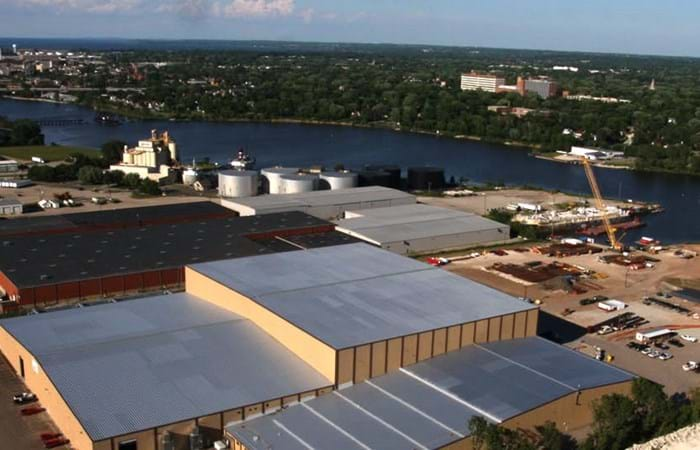As a result of industrialization the riverbed of the Fox River (Wisconsin, USA) had become contaminated with PCBs (polychlorinated biphenyls). Joining together a number of large paper mills based on the banks of the river have established the Fox River Cleanup Group to handle the remediation project. The site is on the federal Superfund program’s National Priorities List.
Tetra Tech was commissioned by the Fox River Cleanup Group as the lead contractor for the remediation and its responsibilities include water treatment and coordination of transportation and disposal of all residual streams. The dredging work is being carried out by local dredger J.F. Brennan, while Stuyvesant Environmental Contracting Inc. (SECI), the North American arm of Boskalis Environmental, is processing the contaminated sediments.
Within a period of 12 months, SECI designed and built a plant to process almost three million m3 of contaminated sediment from the Fox River. Never before has a plant like this been built in such a short space of time. The plant processes the dredged sediments into clean sand and dewatered sludge cake.
Another unique aspect of the project is the integrated approach, with all the steps - dredging, processing and disposal - being combined in a single process.
The harsh winters in this region mean that the plant can only operate for about seven months of the year. Nonetheless, the remediation work got off to a successful start in April 2009 and the project is expected to reach completion as scheduled in 2016.
Key figures for the plant:
- 200 m3 per hour in situ capacity
- 8 membrane filter presses with a capacity of 18 m3 each
- 9,000 m2 for sand separation and mechanical dewatering
- 3,250 m2 for rubble and sand storage
- 7,800 m2 for sludge cake storage
- 1,000 m3 storage tank capacity (two units)
